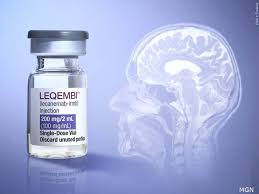Healthy Aging
- Del Mar CRC

- Sep 18, 2024
- 2 min read
Julia Cruz-Moreno

The aging process begins the moment we are born. Many may associate growing old with appearance, mental and physical decline and death.
Aging is very different from what it was decades ago. Due to advances in science and health care and more active lifestyles in older adulthood, we are living longer. We have redefined what it means to age today.
Three key components for aging well are exercise, nutrition and mental activity.
According to a study on Healthy Diets, Regular Exercise, and Better Lifestyle Delay the Progression of Dementia in Elderly Individuals, "healthy diets, regular exercise, and improved lifestyle can delay dementia progression and reduce the risk of [Alzheimer's disease] in elderly individuals and reverse subjects with mild cognitive impairment to a non-demented state."
Exercising

As we grow older we do not have to exercise as we may have in our 20's. We should tailor our exercise routine to activities that keep us active while reducing risks of injury.
Here are some exercises you might want to try:
Walking or cycling
Yoga or light stretching
Swimming or aqua aerobics
The importance of exercising is consistency. Make sure to listen to your body and only do what you can.
Nutrition

Nutrition is crucial for older adults. What we eat influences our mental health, physical functioning and longevity. Maintaining a healthy diet is important in preventing and managing chronic diseases and maintaining cognitive function.
When planning meals or considering what food to eat, it's important to think about:
Eating a variety of foods to reduce the risk of chronic diseases.
Choosing foods low in sugar, saturated fats, and sodium.
Having enough protein and focusing on key nutrients like potassium, calcium, and vitamin D.
Staying hydrated with water or low-fat drinks, limiting sugary options.
Overall, nutrition can improve your quality of life, support independence and enhance your well-being.
Mental Activity
Mental activity is as important as physical exercise to remain healthy. We face many undeniable changes that affect our psychological functioning as we age. Changes may include retirement, dependence upon others, loss of social connection and shifts in living arrangements. Being able to cope and adapt to changes is measured by a person’s well-being. In general, older adults cope well with many changes later in life, however, those whose coping mechanisms fail can be affected by mental health disorders just as surely as physical disorders. Depression and anxiety are two of the most common mental health disorders that affect older adults. Social engagement, brain exercises and a positive attitude can help with a person’s emotional and mental health.
Activities to support your brain health include:
Completing puzzles such as Jigsaw, Sudoku or crossword
Learning a new skill such as an instrument, a new language or arts and crafts
Reading and writing
Spending time with friends and family, volunteering, or any activities that bring you joy
These key components can improve your general well-being and help you age gracefully and with vitality.
References:
George EK, Reddy PH. Can Healthy Diets, Regular Exercise, and Better Lifestyle Delay the Progression of Dementia in Elderly Individuals? J Alzheimers Dis. 2019;72(s1):S37-S58. doi: 10.3233/JAD-190232. PMID: 31227652.





Comments